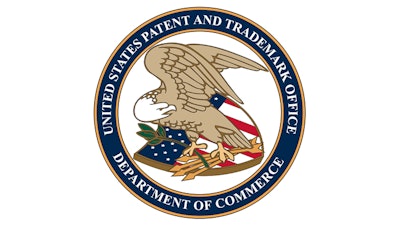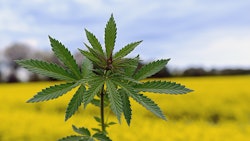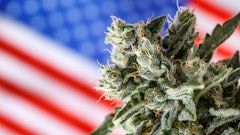
The United States Patent and Trademark Office (USPTO) once again revised its stance on certain cannabis brand trademark applications. Specifically, applications that cover cannabidiol (CBD) products will no longer be immediately accepted and may ultimately be rejected as violating the Office’s Lawful Use Rule.
Until recently, brand owners seeking federal protection of their brands from the USPTO for CBD and other marijuana extracts could get their applications allowed so long as the applicant declared the claimed goods did not violate federal law (i.e., the Controlled Substances Act, or CSA) and therefore, the USPTO’s Lawful Use Rule. Put simply, while a cannabis brand owner could not register a brand to cover substances classified as CSA Schedule 1 substances (e.g., cannabis itself, or items like marijuana cigarettes), it could register marks for ancillary goods and services not prohibited by the CSA.
Quick Legal Background on CBD
The CSA defines marijuana to include “all parts of the plant Cannabis sativa L., whether growing or not; the seeds thereof; the resin extracted from any part of such plant; and every compound, manufacture, salt, derivative, mixture, or preparation of such plant, its seeds or resins.” 21 U.S.C. §802(16).
Significantly, the CSA definition of marijuana expressly excludes “the mature stalks of such plant, fiber produced from such stalks, oil or cake made from the seeds of such plant, any other compound, manufacture, salt, derivative, mixture, or preparation of such mature stalks (except the resin extracted therefrom), fiber, oil, or cake, or the sterilized seed of such plant which is incapable of germination.” Prior to December 2016, CBD was typically considered as being outside the definition of marijuana, and therefore not included among the CSA’s Schedule 1 substances.
Recent Developments
On Dec. 14, 2016, the Drug Enforcement Agency (DEA) published a “Final Rule,” or a new drug code for “Marijuana Extract” (New Drug Code 7350) that essentially expanded the above definition of marijuana to include extracts and derivatives, so that they are now a part of Schedule I of the CSA, where they had previously been expressly excluded.
The code defines marijuana extracts as an extract “containing one or more cannabinoids that has been derived from any plant of the genus cannabis, other than the separated resin (whether crude or purified) obtained from the plant.” The new code caused quite a stir and raised a number of questions among the public, and particularly those advocating for legalization.
In response to the questions, in March 2017, the DEA issued a clarifying statement that acknowledges CBD is legal if it comes from a part of the cannabis plant that is itself legal, such as the mature stalk of the cannabis plant, which remains excluded from the CSA definition of marijuana. The clarification states:
• The new drug code (7350) established in the Final Rule does not include materials or products that are excluded from the definition of marijuana set forth in the CSA.
• The new drug code includes only those extracts that fall within the CSA definition of marijuana.
• If a product consisted solely of parts of the cannabis plant excluded from the CSA definition of marijuana, such product would not be included in the new drug code (7350) or in the drug code for marijuana (7360).
In other words, the DEA clarified that the Final Rule does not make CBD categorically unlawful under the CSA and that, depending on the source, CBD may fall outside the scope of the definition of marijuana, and therefore Schedule I.
The Side Effects
Enter the USPTO, which reviews trademark applications and in particular, rejects trademark applications for marks used or intended to be used on or in connection with goods or services that violate federal law, namely the CSA.
The USPTO’s position, following the DEA’s new drug code, is that the new definition of marijuana extract has been interpreted to include CBD. The implications of the USPTO’s position are significant. Specifically, and with limited exception, the Office will no longer immediately accept applications for marks that include CBD in their identifications of goods and services. It will instead—in most cases—issue a refusal of the application in the first instance, and require the applicant to clarify the source of the claimed CBD. The Office has noted that, because “CBD exists in only trace amounts in the two primary portions of the Cannabis plant which is excluded from the [CSA] definition of marijuana, namely the mature stalks and seeds,” that products comprised primarily of CBD necessarily must come from the flowering tops or leaves of the plant. If the CBD is derived from the flowering tops or leaves of the plant, it will be considered as being within the CSA definition of marijuana. If an applicant cannot or will not verify the source of the CBD excludes it from the CSA definition of “marijuana,” the application will be rejected as violating the CSA. Recently, the Office has even gone so far as to reject applications that cover CBD liquids and lotions because the Office claims that a product comprised primarily of CBD cannot possibly be derived from those parts of the plant that contain only trace amounts of CBD.
The Takeaway
At least for the foreseeable future and while the CSA and new drug code 7350 remain in place, products containing CBD derived from flowering tops or leaves of a Cannabis sativa L. plant are Schedule I substances under the CSA and therefore, in violation of federal law. As such, these violate the Lawful Use Rule and cannot form the basis of a U.S. Federal Trademark Registration.
Christiane Campbell counsels clients on the development, management and protection of their most valuable assets: their brands. She has worked with some of the world’s most recognizable brands to develop strategies for brand development, clearance, protection, monetization, expansion and enforcement. Campbell regularly partners with clients, from start-ups to leading global franchises, in a wide array of industries, including in the cannabis space.

























